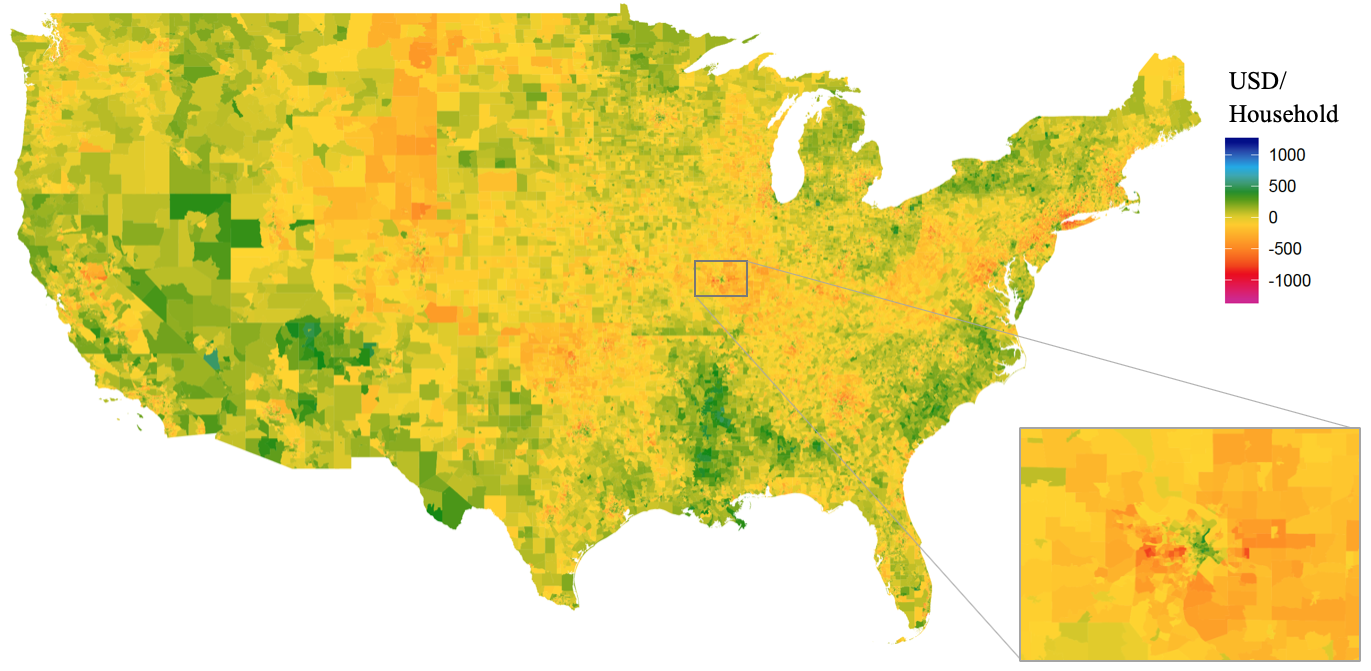
A Carbon Tax to Combat Climate Change and Support Low-Income Households
Summary
Putting a price on carbon is fundamental to achieving U.S. climate goals for 2050. Many options for carbon price-setting exist, and in this policy brief we propose a tax-and-dividend approach that mitigates the challenging impacts that carbon policies have on poor and suburban/rural communities, particularly those in Middle America. Such a plan will be a net gain for low-income households, in contrast to other proposed climate change policies which will adversely affect the poor. Furthermore, it has been shown that even a modest carbon tax can have large benefits in terms of cost-effectiveness.
For that reason, we propose the following:
- Introduce a carbon tax-and-dividend plan as part of any federal climate policy.
- Use revenue to offset impacts on low-income households, taking into account enormousregional disparities.
- If political dynamics favor regulatory standards, consider coupling such standards with amodest carbon tax whose revenue can be used to offset their regressive effects.
This year’s Red Sky Summit was an opportunity to further consider what the role of fire tech can and should be – and how public policy can support its development, scaling, and application.
Promising examples of progress are emerging from the Boston metropolitan area that show the power of partnership between researchers, government officials, practitioners, and community-based organizations.
FAS supports the bipartisan Regional Leadership in Wildland Fire Research Act under review in the House, just as we supported the earlier Senate version. Rep. David Min (D-CA) and Rep. Gabe Evans (R-CO) are leading the bill.
The current wildfire management system is inadequate in the face of increasingly severe and damaging wildfires. Change is urgently needed